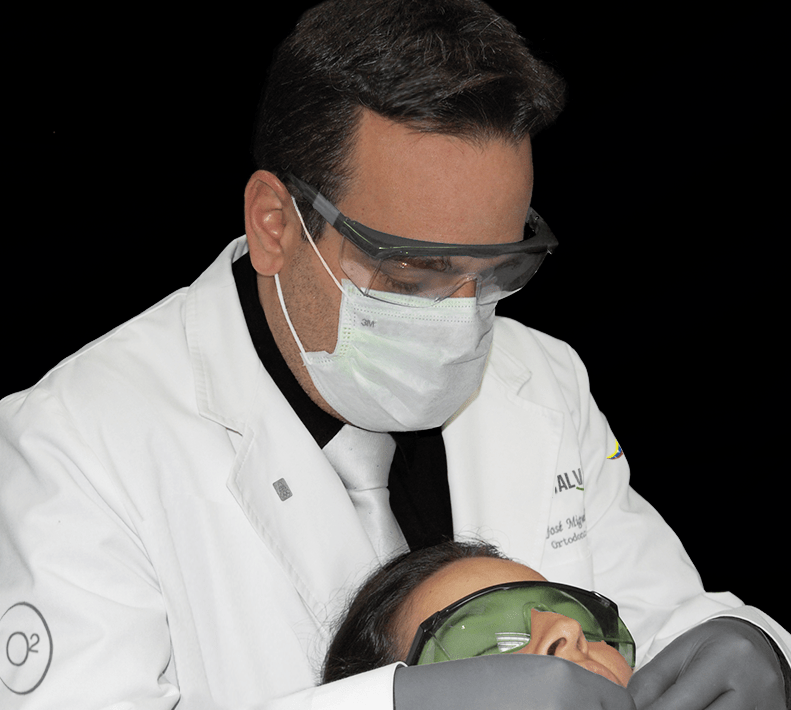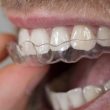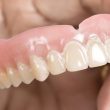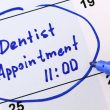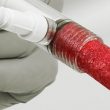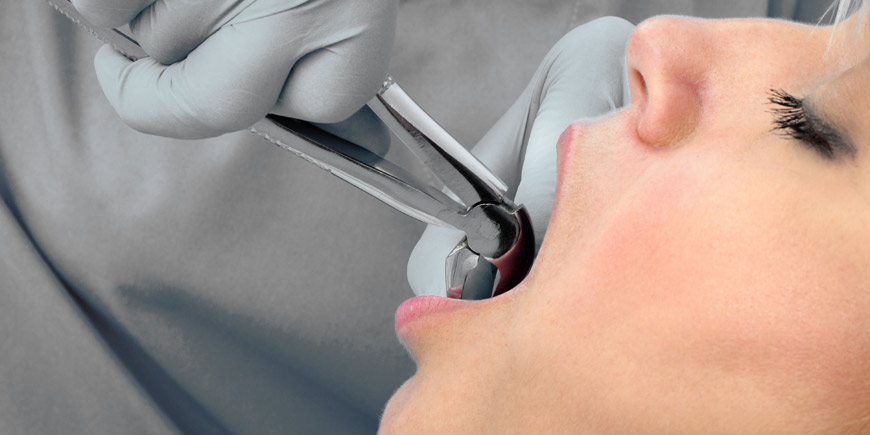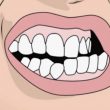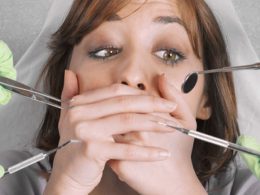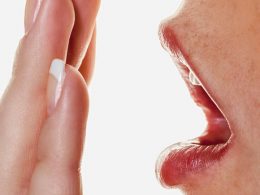Table of Contents
Despite all the advances our profession has experienced in recent years, dental extractions remain a common practice in dental offices around the world.
Third molars (wisdom teeth), included or impacted teeth, loose teeth due to periodontal disease, fractured or destroyed teeth by dental caries and residual roots, are the main objective of the most common procedure in Oral Surgery; exodontics, odontectomy or tooth extraction.
After removing an organ of this type, there is always a wound in the jawbone that must be taken care of as much as possible to avoid bleeding, infections and other even more serious complications.
As a general rule, and to guarantee an adequate tissue healing process, it is necessary to comply with a series of very specific and important indications. The following protocol includes 16 basic indications that apply to all Oral Surgery procedures and all types of dental extractions, whether individual, multiple, simple or complex:
1- Do Not Spit and Gently Bite the Gauzes Placed by the Surgeon for 1 Hour
Gauzes are a “plug” so that the blood stops, and that the Surgeon places at the end of the procedure. Keep them in your mouth for an hour!
Sometimes, there may be slight bleeding for the first 24 hours, do not worry. But if that bleeding becomes more intense (hemorrhage), one or more sterile gauzes should be folded, placed over the wound and compressed biting gently with the opposite teeth, until the blood stops. If it is necessary to put more gauzes, never remove the first ones, apply new ones on them. Put ice on yourself and avoid lying down. If the problem persists, contact our Specialist immediately.
2- Apply Cold Compresses at the Intervened Area Level
To reduce pain and inflammation, cold should be applied to the face, on the skin (outside the mouth) in intermittent way, at 30-minute intervals, with ice wrapped in a cloth or bag or with special compresses, at the level of the operated area, for the first 24 hours and for as long as possible.
3- Take the Prescribed Analgesics and Anti-Inflammatories
Always respecting the indicated doses and posiologies. The inflammation usually subsides within a few days. In the vast majority of cases we prescribe 400 mg ibuprofen, 1 tablet every 8 hours for 3 days (if you are not allergic to the drug). However, if you do not feel pain and it is not swollen, you can stop it the day after the extraction.
4- If Indicated, Take Antibiotics Religiously
It is not always necessary to take antibiotics after a tooth extraction. This indication is relevant only if we have given you a written prescription. Do not self-medicate!
In that case, take them for a minimum period of 7 days and without omissions or schedule alterations. Bear in mind that any secondary infection would jeopardize the postoperative success. Our drug of choice is amoxicillin + clavulanic acid 875/125 mg, 1 tablet every 12 hours for 7 days. In cases of allergy to penicillin, we usually prescribe special protocols based on clindamycin, tetracycline or azithromycin.
5- Do Not Eat Solid or Hot Foods
At least until the tissues of the area(s) affected are recovered. Maintain a soft diet (soups, fruits, purees, compotes, scrambled foods and porridges) for 2 or 3 days, taking care at all times that no rest of food is introduced into the wound(s). Avoid cereals, grains, and rice for a week. Consume everything cold or warm, we repeat, nothing hot. Heat causes vasodilation and bleeding.
From the third day, gradually incorporate more solid foods, but always taking care not to traumatize the affected areas with chewing.
6- Do Not Touch the Wound(s) with Tongue or Fingers
Mechanical trauma of a recent wound is a major obstacle to its healing mechanism. In addition, the inoculation of bacteria by pressure on the surface of the same is a potential risk that we must avoid during the immediate postoperative period.
7- Staying Well Hydrated
Preferably with mineral water and natural pineapple or papaya juices, which due to their enzymatic content, relieve pain and help reduce any type of inflammation.
8- Avoid Chewing with the Affected Area
They are weak, traumatized and very susceptible to pain and bleeding tissues. Help your wounds heal quickly. In the case of multiple wounds, which are arranged in several areas of the mouth, it is advisable to extend the “soft diet” for up to a week, since there will be no other way to avoid contact of foods with the intervened areas.
9- Do Not Smoke, Do Not Use Straws or Suck Anything with Your Mouth
Drink everything directly from the cup, glass or container. If necessary, you can use a spoon. Any act that involves sucking with the mouth, such as with a straw for example, can cause bleeding or infection of the wounds.
10- Resting Adequately
Not doing physical exertion activities for a week, to keep blood pressure stable and reduce bleeding. The necessary rest does not imply lying in a bed, as if it were a major surgery. In our case, rest refers to avoiding intense activities such as: running, jogging or walking at a fast pace, swimming, climbing stairs, carrying heavy objects, going to the gym, etc, etc, etc.
11- Avoid Tobacco and Alcohol Completely
Both are toxic substances for the body that delay the healing process, interfere with the mechanism of action of antibiotics and increase the susceptibility to bleeding and infections. Do it for at least a week. It is very important!
12- Practice Good Oral Hygiene
But it is important, during the first two days, to avoid brushing the areas where teeth were extracted or where there are sutures, to avoid trauma and bleeding. The day after the intervention, you can rinse (without swishing) with warm water and salt (1/4 teaspoon of salt in half a glass of warm water) or with antibacterial mouthwashes, 3 or 4 times a day. From the third day on, you can gently brush the wounds. After 1 week, you can restart the usual oral hygiene mechanisms.
13- Do Not Swish
It is one thing to rinse your mouth and quite another to swish. For the first few days, swishing will surely cause bleeding. The omission of this indication is one of the most frequent causes of complications in Oral Surgery.
In addition, it is important that you understand that after the extraction, a blood clot forms in the dental alveolus (cavity where the root was lodged). This blood clot is what covers and protects the jawbone from any infection. Once organized, the clot is brittle and easy to dislodge, leaving the bone exposed and defenseless. To swish is the easiest and most effective way to dislodge that blood clot and get a secondary infection. Avoid swishing completely for at least 7 days!
14- Try to Sleep with the Head Elevated
In relation to the rest of the body, to avoid the possibility of bronchoaspiration of blood or any type of exudate. It is usually useful to use a double or triple pillow for 2 or 3 days.
15- Apply Vaseline Jelly Frequently on the Lips
Especially where they meet and form the lip corner, until the conditions of the mouth return to normal. Keeping your lips well hydrated will allow you to feel more comfortable and will prevent postoperative ulcers and lacerations.
16- Go to Consultation for Suture Removal
If it is pertinent, go to a consultation on the date indicated for the removal of sutures or surgical dressings. It is generally between 7 and 10 days after the intervention.
Complications with the Maxillary Sinus
The maxillary sinus is an anatomical structure that is sometimes affected (oro-antral communication) when extracting posterior pieces in the upper jaw. If this is your case, do not worry, the Surgeon will let you know and if necessary, will place plugs and/or sutures to close the communication. However, you must take the following measures, all in addition to the 16 already specified:
1- Avoid Blowing Your Nose, Sneezing or “Uncovering” Your Ears
For a period of at least 15 days. If sneezing is unavoidable, then do so freely, with your mouth open and without obstructing or resisting the pressure generated by the expulsion of air. Never try the Valsalva maneuver, which is typical for uncovering your ears and involves trying to breathe out with your mouth and nose closed.
Any of these actions could reopen or enlarge the oro-antral communication and aggravate the problem.
2- Avoid Diving or Submerging Your Head Under Water
Also, for a period of at least 15 days. Also avoid any vigorous activity or exercise that can cause increased intra-sinus pressure.
3- Use Afrin® or Any Other Nasal Decongestant
In drops or spray, every 12 hours during the first 7 days, to keep the airway permeable and facilitate postsurgical drainage of the affected cavity.
4- Take the Prescribed Antihistamine
For a period of 15 days, but only if it has been indicated.
5- Do Not Travel by Plane for at Least 10 Days
Since pressure changes in the ascent and descent of the aircraft could aggravate the problem.
By complying with these indications, we help wounds heal quickly and normally. Even so, it is important to be very attentive to certain symptoms that may appear during the postoperative period and for which it would be necessary to go immediately to the consultation for the Surgeon’s supervision. Some of them are heavy bleeding, persistent pain, and exaggerated inflammation; despite the intake of prescribed medications.
If necessary, do not hesitate to contact the Specialist immediately.
“The Bad Habit of Swishing After a Tooth Extraction, Is One of the Main Causes of Bleeding and Postoperative Complications”.
DENTAL TIP
Most Common Complications After a Tooth Extraction
After tooth extractions, if all the precautions and warnings that we have indicated are not followed, some important complications can occur. Below we list the most frequent:
- Hemorrhage It is the most frequent postoperative complication and the one that generates greater alarm. Although cases of massive hemorrhage are very rare, they may warrant reoperation or hospitalization of the patient.
- Secondary Infections Our mouth is normally full of bacteria, and if the necessary care is not taken, they can easily invade wounds. We are the ones who will decide whether you should or not take antibiotics. Typically, for simple tooth extractions, they are not required. Now, if a patient has had a lot of pain, inflammation or discharge of purulent exudate before the procedure, we may opt for the use of preventive antibiotics. It will also depend on the characteristics that the Surgeon perceives in the wound after the intervention.
- Inflammation and Acute Pain Some swelling and pain are normal after any dental extraction, particularly if they are surgical (requiring opening the gum) or third molars. However, if these symptoms become severe and unbearable, they are probably the obvious manifestation of an infection or alteration of the healing process.
- Dry Socket Also called located alveolar osteitis, it is without a doubt the most dreaded and painful condition that can occur. It consists of the direct infection of the alveolus or maxillary bone that surrounded the root of the extracted tooth. With dry socket, the patient is often fine a day or two after the procedure, but then suddenly severe and excruciating pain appear and also penetrating bad breath. Its most common causes are the dislodgement of the intra-alveolar blood clot by swishing and the entry and decomposition of food debris within the wound. It is a very painful, long and difficult complication to treat. It is best to avoid it!
- Osteonecrosis It is a rare complication that occurs mainly in cancer patients receiving radiotherapy or women who consume large doses of bisphosphonates. It is characterized by the fact that the alveolar bone becomes visible and the wounds show no signs of healing, even 8 weeks after the procedure. The best thing is to prevent it through a good anamnesis and medical history, which allow the Surgeon to take the pertinent measures before executing the procedure.
How to Save Thousands by Getting Dental Work in Venezuela
On average, dental work in Venezuela is about a third the price of what you are used to paying at home, without a drop in the quality of care. All the process takes is just a little research and a few more logistics. In the “Dental Tourism” category of this same blog we describe all the considerations necessary to get dental care done in Venezuela.
The first thing you want to do is get a quote for the dental work you need done by our team. Most of the time, simply sending a few photos and X-rays to us will do just fine. The online consultation will provide a strong idea of what will need to be done, and will be able to provide you with a pretty close cost estimate for the dental procedures.
Through our WhatsApp or Email you can ask all the necessary questions about the proposed treatment and its details. DENTAL VIP has specially trained personnel for this function.
Once the quote is approved, you must indicate the date of your trip to corroborate the treatment viability in the selected period, ensure your accommodation and proceed with the purchase of air tickets.
Congrats! Now you are on your way to saving thousands by getting dental work in Venezuela.
